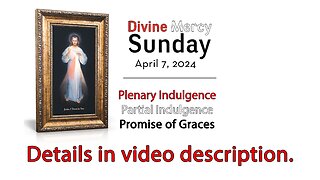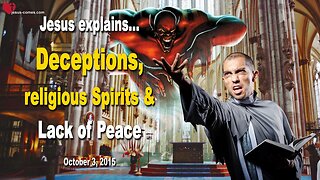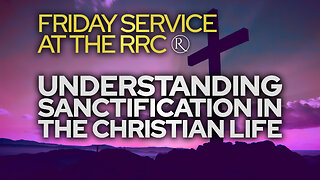Episode 1913: The Virtue of Charity: Through the example of the Immaculate Conception
The Virtue of Charity through the eyes of the Immaculate Conception
We delve into the rich tapestry of traditional Catholic teachings and explore their relevance in today's world. We explore two quotes from esteemed Catholic theologians, St. John Fisher and St. John Henry Newman.
Our first quote comes from St. John Fisher, a revered figure known for his unwavering commitment to the Catholic faith during the tumultuous times of the English Reformation. He said, "We should remember, in all the controversies in which we engage, to treat our opponents as if they were acting in good faith, even if they seem to us to be acting out of spite or self-interest."
So this is about the virtue of charity, which lies at the heart of Catholic ethics. In today's world, where divisiveness and polarization often dominate discourse, St. John Fisher's tells us Catholics to engage in dialogue with humility and respect, even when faced with opposition. By treating our opponents with kindness and assuming their good intentions, we emulate the example set by Christ himself, who preached love and forgiveness even in the face of hostility.
Let's go a little deeper into this quote from St. John Fisher from a traditional Catholic perspective:
Importance of Charity: St. John Fisher underscores the importance of charity, which is one of the cardinal virtues in Catholic teaching. Charity, also known as love, is considered the greatest of all virtues (1 Corinthians 13:13).
"And now there remain faith, hope, and charity, these three: but the greatest of these is charity."
It is the love of God and neighbor that guides our actions and attitudes, especially in contentious situations.
Assuming Good Faith: Fisher encourages us to assume that our opponents are acting in good faith, even if their actions or words may seem otherwise. This echoes the teaching of Jesus Christ, who urged His followers to "love your enemies, do good to those who hate you" (Luke 6:27).
"But I say to you that hear: Love your enemies, do good to them that hate you."
By assuming good faith in others, we demonstrate humility and openness to dialogue, fostering an environment conducive to reconciliation and understanding.
Respect for Human Dignity: Treating opponents with respect, regardless of their motivations, reflects the Catholic principle of respecting the inherent dignity of every human person. The Catechism of the Catholic Church teaches that every human being is created in the image and likeness of God (CCC 1700), deserving of respect and compassion. It says:
"The dignity of the human person is rooted in his creation in the image and likeness of God (article 1); it is fulfilled in his vocation to divine beatitude (article 2). It is essential to a human being freely to direct himself to this fulfillment (article 3). By his deliberate actions (article 4), the human person does, or does not, conform to the good promised by God and attested by moral conscience (article 5). Human beings make their own contribution to their interior growth; they make their whole sentient and spiritual lives into means of this growth (article 6). With the help of grace they grow in virtue (article 7), avoid sin, and if they sin they entrust themselves as did the prodigal son to the mercy of our Father in heaven (article 8). In this way they attain to the perfection of charity."
Overcoming Division: In a world often marked by division and conflict, St. John Fisher's words remind us of the importance of seeking unity and reconciliation. As Catholics, we are called to be peacemakers (Matthew 5:9), working towards healing and understanding even in the midst of disagreements.
"Blessed are the peacemakers: for they shall be called the children of God."
Emulating Christ: Ultimately, St. John Fisher's exhortation reflects the example set by Jesus Christ Himself. Throughout His ministry, Jesus encountered opposition and hostility, yet He responded with love and forgiveness. By treating our opponents with charity and assuming their good intentions, we strive to emulate the love and mercy of Christ in our interactions with others.
In summary, St. John Fisher's quote underscores the timeless Catholic values of charity, humility, and respect for human dignity, encouraging us to approach all controversies with a spirit of love and understanding.
Now, let's turn our attention to the words of another eminent Catholic thinker, St. John Henry Newman, who offers profound insights into the doctrine of the Immaculate Conception. He said, "Adam and Eve were created upright and sinless, and had a large measure of God’s grace bestowed upon them. In consequence, their bodies would never have crumbled into dust, had they not sinned. If Eve, the beautiful daughter of God, never would have become dust and ashes unless she had sinned, shall we not say that Mary, having never sinned, retained the gift which Eve by sinning lost? … Therefore we believe that, though she died for a short hour, as did our Lord himself, yet like him, and by his almighty power, she was raised again from the grave.”
St. John Henry Newman's statement on the Immaculate Conception is a theological one about the significance of Mary's sinlessness. He draws a parallel between Eve, the mother of all the living, and Mary, the new Eve, highlighting Mary's unique role in salvation history. Just as Eve's sin brought about the fall of humanity, Mary's obedience and sinlessness paved the way for the redemption wrought by Christ.
As Catholics, we need to deepen our understanding of our faith and its implications for our lives. St. John Fisher's call to charity challenges us to embody the love of Christ in our interactions with others, even amidst disagreement and conflict. Meanwhile, St. John Henry Newman's reflections on the Immaculate Conception remind us of Mary's pivotal role in God's plan of salvation and her unparalleled holiness as the Mother of God.
We need to strive to emulate the virtues exemplified by these esteemed saints, seeking to engage in charitable dialogue and deepening our devotion to the Blessed Virgin Mary, who continues to intercede for us before the throne of God.
Adam and Eve's Original State: The quote begins by acknowledging the original state of Adam and Eve, emphasizing that they were created by God in a state of innocence and holiness. They were upright and sinless, enjoying a close relationship with God and being recipients of His grace.
Consequence of Sin: The quote then highlights the consequence of Adam and Eve's sin, namely, the mortality and corruption introduced into human nature. Before their fall, Adam and Eve's bodies were not destined to decay and return to dust. However, their disobedience to God's command brought about the condition of mortality, leading to physical death and the eventual decomposition of their bodies.
Comparison with Mary: The quote draws a parallel between Eve, who succumbed to temptation and brought about the Fall, and Mary, who remained sinless throughout her life. Just as Eve's sin led to the loss of the original state of grace, it is suggested that Mary, by remaining sinless, retained the gift of grace that Eve lost. This emphasizes Mary's role as the New Eve, who played a crucial part in the redemption of humanity through her obedience and faithfulness to God.
Mary's Death and Assumption: Finally, the quote affirms the belief in Mary's death and subsequent assumption into heaven. It parallels Mary's short period of death with that of Jesus, emphasizing her union with Him in His salvific work. Just as Christ was raised from the dead by the power of God, it is believed that Mary, by the same power, was also raised from the grave and assumed body and soul into heavenly glory.
In summary, this quote underscores traditional Catholic teachings regarding the state of Adam and Eve before the Fall, Mary's sinlessness and unique role in salvation history, and her assumption into heaven. It reflects the belief in Mary as the New Eve, closely united with Christ in His redemptive mission, and serves to deepen the understanding of Catholic doctrines concerning original sin, grace, and the Blessed Virgin Mary.
But lets end with a scripture verse.
"In peace I will both lie down and sleep; for thou alone, O Lord, makest me dwell in safety."
–Psalm 4:8
Acknowledgment of God's Protection: The quote begins by expressing trust and confidence in God's protective care. It acknowledges that it is the Lord alone who provides safety and security for the speaker. This reflects a fundamental aspect of traditional Catholic spirituality, which emphasizes God's providence and protection over His faithful.
Peace in God's Presence: The speaker declares their intention to lie down and sleep in peace, knowing that God is watching over them. This highlights the deep sense of peace that comes from being in communion with God and trusting in His presence. In traditional Catholic teaching, cultivating a sense of peace and trust in God's providence is considered essential for spiritual well-being.
Dependency on God's Mercy: By stating that God alone makes them dwell in safety, the speaker acknowledges their dependency on God's mercy and grace. This reflects the traditional Catholic understanding of humanity's reliance on God for all things, including protection from harm and danger. It emphasizes the humility and trust required to surrender oneself entirely to God's care.
Prayer as a Source of Comfort: The quote is a prayerful expression of reliance on God's protection, demonstrating the traditional Catholic practice of turning to prayer in times of need. It highlights the belief that prayer is not only a means of communication with God but also a source of comfort and strength, especially in moments of vulnerability or uncertainty.
In summary, this quote from Psalm 4:8 reflects key aspects of traditional Catholic spirituality, including trust in God's providence, the importance of peace in His presence, dependency on His mercy, and the comfort found in prayer. It serves as a reminder of the believer's relationship with God as their ultimate source of safety and security.
So take the teaching of these two great saints and Psalm and go out and convert somebody.
-
 30:48
30:48
CatholicReboot
2 months ago $0.01 earnedEpisode 2029: The Virtue of Charity: Drawing Near to God's Heart
107 -
 28:41
28:41
CatholicReboot
2 months ago $0.02 earnedEpisode 2042: Overcoming Temptation: Through Love and Virtue
127 -
 18:30
18:30
Our Lady's Chapel
2 months ago $0.07 earnedDivine Mercy (2nd SUNDAY of EASTER) - April 7, 2024 - HOMILY
24 -
 1:17:31
1:17:31
Sancta Sedes Apostolica - The Holy Apostolic See
3 months agoThe alarming examples of Divine punishment of heretics, in their canonical and doctrinal blindness...21 March, 2024 AD
32 -
 10:05
10:05
Jesus' Love Letters ... Liebesbriefe
2 months agoDeceptions, religious Spirits and Lack of Peace ❤️ Love Letter from Jesus Christ
203 -
 10:47
10:47
Jesus' Love Letters ... Liebesbriefe
4 months agoI bless you with My perceptible Presence… Bring your Questions to Me! ❤️ Love Letter from Jesus
118 -
 46:12
46:12
Sancta Sedes Apostolica - The Holy Apostolic See
3 months agoThe Holy See Condemnation (ANATHEMA) of the present abominations in the world...23 March, 2024 AD
51 -
 32:45
32:45
HandinHandwithGodTv
3 months agoMentions You @ Power To Triumph || This Is Not Home For Believers In Christ Jesus || March 14, 2024.
5 -
 3:30
3:30
Revive Scriptures
2 months agoApril 16 Morning Devotional | The Precious Blood of Christ | Morning and Evening by Charles Spurgeon
65 -
 1:53:06
1:53:06
Todd Coconato Show
3 months ago"Set Apart for His Glory: Understanding Sanctification in the Christian Life" • Friday Service
1.29K